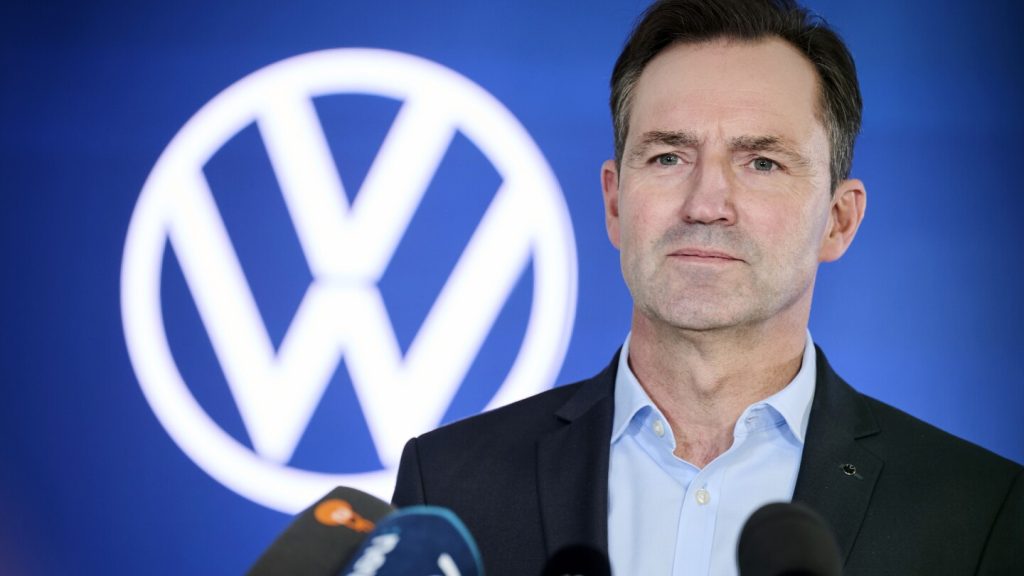The recent wage deal between Volkswagen and its employee representatives has been described as a positive agreement that avoids plant closings and prohibits involuntary layoffs through 2030. The deal, which covers 120,000 German workers, includes provisions for VW to reduce its workforce by more than 35,000 jobs through early retirement and buyouts by 2030. The main goal of the agreement is to help the Wolfsburg-based carmaker address a decline in demand in Europe, higher raw material costs, and increasing competition from Chinese automakers. By cutting manufacturing capacity and labor costs, Volkswagen aims to save 1.5 billion euros per year and reduce its production by over 700,000 vehicles across its German plants.
The involvement of employee representatives and the state of Lower Saxony, which has a majority on Volkswagen’s board of directors, played a significant role in preventing wholesale plant closings. This unique setup gives employees and the local government significant leverage in negotiations. A top Volkswagen executive praised the agreement as beneficial, highlighting that the negotiations prioritized reducing overcapacity, cutting labor costs, and lowering development costs to stay competitive. The IG Metall union, representing Volkswagen employees, mentioned that the deal involved painful concessions, such as loss of bonus payments, but monthly wage levels remain untouched, despite the company’s push for a 10% wage cut.
Volkswagen emphasizes the need to align labor costs in Germany with its competitors and other Volkswagen plants in different regions. While major plant closings were avoided, the company announced the cessation of production at its Dresden plant by the end of next year and limited production at its Osnabrueck plant to T-Roc SUVs until mid-2027. The company plans to explore alternative uses for the Osnabrueck plant after the production switch. Additionally, Volkswagen will relocate the production of its Golf model from Wolfsburg to Puebla, Mexico, and reduce the assembly lines at Wolfsburg from four to two, focusing on producing compact cars. Around 4,000 vehicle development jobs will be eliminated at the Wolfsburg plant as part of the restructuring efforts.
The agreement reached between Volkswagen and its employee representatives signifies a balance between cost-cutting measures and maintaining job security for German workers within the company. While the deal involves painful concessions, it also ensures sustainable solutions in reducing overcapacity, labor costs, and development expenses. The ability to avoid widespread plant closings and layoffs demonstrates the collaborative effort between Volkswagen, its employees, and the state of Lower Saxony, showcasing a unique governance structure that provides workers with a voice in key decision-making processes. The restructuring plan outlined in the agreement aims to address the challenges faced by Volkswagen, including declining demand in Europe and increased competition, by optimizing production capacity and reducing costs to enhance the company’s overall competitiveness in the global automotive market.
Going forward, Volkswagen will focus on implementing the agreed-upon changes to improve its operating efficiency and financial performance. By streamlining production processes, cutting labor costs, and reallocating resources to more profitable models and regions, the company aims to strengthen its position in the automotive industry. The successful negotiation of the wage deal underscores Volkswagen’s commitment to adapting to evolving market conditions while also prioritizing the well-being of its workforce. With a clear plan in place to address overcapacity and reduce costs, Volkswagen is poised to navigate the challenges ahead and secure its future in a rapidly changing automotive landscape.


